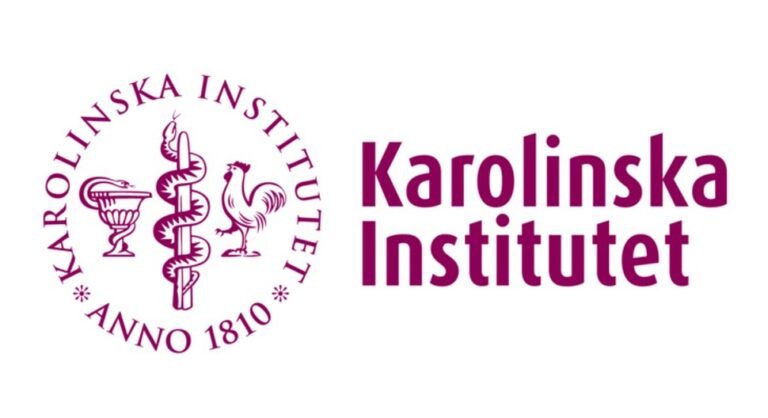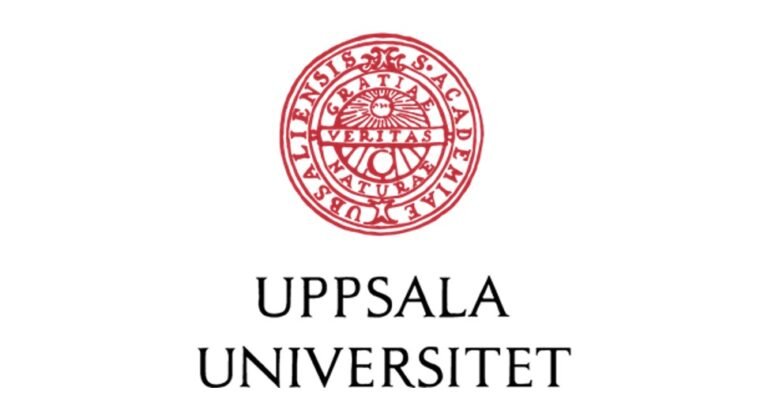The Center for Cellular Cancer Therapy (C3T), Karolinska Institutet (KI), is a recently formed research constellation funded by a grant from the Swedish Research Council following a call for national for Centers of Research Excellence. We encompass basic, translational, and clinical principal investigators with a focus on understanding and improving cellular immunotherapies against cancer, with a particular focus on solid tumors. Our overall aim is to expand competence and create an international competitive platform at KI within the rapidly developing field of living drugs against cancer. We offer an engaging and international research environment where you may contribute to high quality research on an internationally competitive level.
C3T encompasses the following research group leaders:
- Carmen Gerlach: Expertise in cytotoxic lymphocyte diff erentiation and function, mouse models, advancedcell lineage tracing technologies
- Yenan Bryceson: Expertise in cytotoxic lymphocyte diff erentiation and function, transcriptional regulation oflymphocyte tissue-residency
- William Nyberg: CAR-T cell immunotherapy, in vivo CAR-T cell generation and gene engineering.
- Isabelle Magalhaes: CAR-T cell immunotherapy, xenogenic models of CAR-T cells targeting solid tumors
- Michael Uhlin: Gamma-delta T cell biology and immunotherapy, clinical cell manufacturing
- Stephan Mielke: CAR-T cell immunotherapy, responsible for clinical CAR-T cell trials
Your mission
You will be working in an international and interdisciplinary research environment, where collaborative efforts are encouraged and your development to scientific independence will be fostered. Within C3T we constitute a multi-disciplinary group of experimentalists, lab technicians, computational biologists, developers, PhD students and researchers of various background. We always aim for an open and creative environment. The research groups are based within different research constellations at Karolinska Institutet but will foster collaboration through regular events and yearly workshops. You will have access to state-of-the art molecular biology, cell culture, animal husbandry, flow cytometry, and imaging facilities.
To build a strong and creative research team, we are looking for high achievers from universities around the world. We will offer an intellectually stimulating environment with prominent guest researchers and we look for talented people who will play a part in developing our next breakthrough ideas. Our aim is to promote independent researchers that will build their careers in science.
The C3T vision is to utilize insights from cytotoxic lymphocyte biology to improve cellular immunotherapy of solid tumors. The C3T consortium is currently recruiting postdocs for three projects.
Project 1:
This project’s primary objective is to further improve CAR T cell therapy, particularly in the context of solid tumors, by optimizing CAR T cell production (e.g. culture conditions), choice of T cell source/subset for CAR production and CAR design improvements. Our group has established CAR T cell preclinical models of solid tumors (i.e. ovarian cancer, Schoutrop et al., Cancer Res 2021; Schoutrop et al., JITC 2023) and evaluated the efficacy of mesothelin-targeting CAR T cells in vitro and in vivo.
The candidate will be involved in producing CAR T cells and evaluating their effector functions in vitro and in vivo and developing orthotopic animal models of cancer.
We aim to recruit an independent and forward-thinking postdoc also willing to generate and test experimentally improved CAR designs. The methods used will include cell culture, genetic modification, flow cytometry, functional analysis and animal experiments. In addition, the postdoc will be encouraged to mentor students and participate in grant-writing.
Project 2:
This project:
a) Aims to develop a tool to easily identify tumor-specific T cells, and b) to further improve CAR T cell therapy by optimizing CAR T cell production and T cell source
b) Is linked to project 1 and builds on previous work by our group (Zwijnenburg et al. Immunity 2023), and the Magalhaes group.
The project involves advanced flow cytometry, work with human and murine T cells, cell culture, T cell functional assays, mouse tumor models, analysis of single-cell omics datasets / bioinformatics and some degree of molecular biology. Since the larger project requires a diverse set of competencies, the project will be carried out collaboratively by researchers with different competencies. We’re looking for a candidate that is excited about this project and has experience in either primarily bioinformatics and analysis of single-cell omics datasets with ideally some wet-lab experience, or for a candidate that has primarily experience in animal work and flow cytometry and ideally some singe-cell sequencing analysis.
The cadidates are expected to plan, perform, analyze and document experiments in a transparent manner, and to communicate the results within, between and outside of the research groups. The duties furthermore include actively taking part in research meetings and journal clubs and contributing to the well-functioning of the local research environment.
Project 3:
Within our group we perform immunological research, and our focus is on T cells, especially γδ T cells, as these immune cells have so far not been efficiently exploited. We work with tumor-infiltrating lymphocytes (TILs) in solid tumors (ovarian and prostate cancer) and samples from patients who underwent allogeneic stem cell transplantation.
The successful candidate will be responsible for collecting ovarian cancer patient-derived material and isolate lymphocytes from peripheral blood, ascites and tumor. The applicant will be expected to use a wide range of immunological and biochemical techniques such as flow cytometry TCR Sequencing, NGS and fluoroSpot analysis for the characterization of these cells and to understand the environment in which these cells reside. The applicant will be involved in teaching and tutoring of Ph.D. and master students. We would like to see that the candidate also has experience with bioinformatics.
Your profile
To be eligible for employment as a postdoctor, a PhD or a foreign degree deemed to be equivalent to a Swedish PhD is required. This eligibility requirement must be fulfilled at the latest at the time of the employment decision. Completion of your doctoral degree within the last three years is considered an advantage. If there are special reasons, your degree may have been completed earlier.
You have a PhD in the field of immunology or immunotherapy of cancer and a great interest in immunotherapy.
Project 1:
Required skills:
- At least one first author publication in a recognized peer-reviewed journal.
- Experimental knowledge of immunological methods.
- Hands on experience with animal models of cancer.
- Effective communication in English, both spoken and written.
- Excellent communication skills and capacity to work collaboratively.
- Ability to work independently and manage multiple projects in parallel.
Desirable skills:
- Hands-on experience with cell culture, cell sorting, and advanced flow cytometry.
- Experience with viral vector for cell transduction.
Project 2:
Required skills:
- At least one first author publication in a recognized peer-reviewed journal.
- Good knowledge of immunology and immunotherapy of cancer
- Hands on experience in flow cytometry and animal models of cancer and/or infection, or experience in bioinformatics / analyzing single-cell omics datasets (e.g. scRNAseq, CITEseq, scATACseq). Experience in both areas is a merit.
- Effective communication in English, both spoken and written.
- Excellent communication skills and capacity to work collaboratively.
- Ability to work independently and manage multiple projects in parallel.
Desirable skills:
- Hands-on experience with cell culture, cell sorting, and advanced flow cytometry.
- Experience with viral vectors for cell transduction.
Project 3:
Required skills:
- At least one first author publication in a recognized peer-reviewed journal.
- Good knowledge of immunology and immunotherapy of cancer
- Hands on experience in flow cytometry and animal models of cancer and/or infection, or experience in bioinformatics / analyzing single-cell omics datasets (e.g. scRNAseq, CITEseq, scATACseq). Experience in both areas is a merit.
- Effective communication in English, both spoken and written.
- Excellent communication skills and capacity to work collaboratively.
- Ability to work independently and manage multiple projects in parallel.
Desirable skills:
- Hands-on experience with cell culture, cell sorting, and advanced flow cytometry.
- Experience with viral vectors for cell transduction.
What do we offer?
A creative and inspiring environment with wide-ranging expertise and interests. Karolinska Institutet is one of the world’s leading medical universities. At Karolinska Institutet, we conduct successful medical research and hold the largest range of medical education in Sweden. At KI, you get to meet researchers working with a wide range of specialisms and methods, giving you ample opportunity to exchange knowledge and experience with the various scientific fields within medicine and health. It is the crossover collaborations, which have pushed KI to where it is today, at the forefront of global research. Several of the people you meet in healthcare are educated at KI. A close relationship with the health care providers is important for creating groundbreaking top quality education and research. Karolinska Institutet is also a state university, which entitles you to several benefits through our collective agreement.
Application
An employment application must contain the following documents in English or Swedish:
- A complete resumé, including date of the thesis defence, title of the thesis, previous academic positions, academic title, current position, academic distinctions, and committee work
- A complete list of publication
- A summary of current work (no more than one page)
Welcome to apply at the latest 2025-04-13.
The application is to be submitted through the Varbi recruitment system.
Want to make a difference? Join us and contribute to better health for all!




